Top Customer Service Skills Employers Want in 2025

Customer service is no longer just about solving problems. It’s about creating experiences that leave lasting impressions. As customer expectations rise, companies are focusing on soft skills like empathy and active listening to build trust. At the same time, technology is transforming how you interact with customers. Tools like Sobot’s AI-powered solutions are enabling businesses to deliver personalized, omnichannel experiences while staying efficient. By mastering the top customer service skills, you can position yourself as an invaluable asset in this fast-changing landscape.
The Evolving Landscape of Customer Service in 2025

Defining customer service and its growing importance
Customer service is more than just answering questions or resolving complaints. It’s about creating a seamless customer experience that leaves people feeling valued and understood. In 2025, this role has become even more critical as businesses compete to build loyalty in a world where 93% of customers expect higher service standards than ever before. A single bad interaction can lead to reduced spending, while improving a poor experience to just average can increase the likelihood of repeat purchases by 68%. Your ability to deliver exceptional service can directly impact a company’s success and reputation.
Key trends shaping customer service roles
The way you approach customer service is evolving rapidly. Omnichannel support is now essential, allowing customers to interact with businesses through their preferred platforms. Personalized experiences are no longer optional—they’re a must for enhancing the customer journey. Workforce flexibility is also on the rise, with remote teams becoming the norm. AI tools are transforming how you handle repetitive tasks, freeing up time for more meaningful interactions. And don’t underestimate the power of responding to reviews. Engaging with feedback strengthens brand trust and improves the overall customer experience.
| Trend Description | Key Insights |
|---|---|
| Decline in loyalty | 53% of bad experiences lead to reduced spending. |
| Back to basics | Clear communication and accurate information are key. |
| Feedback drop | Only 16% of consumers use social media for complaints. |
The impact of technology and tools like Sobot's Voice/Call Center
Technology is reshaping customer service, and tools like Sobot’s Voice/Call Center are leading the charge. These solutions streamline communication by integrating multiple channels into one platform. Features like AI-powered voicebots and intelligent IVR reduce inbound call volumes by 20% and improve problem resolution rates to 85%. With a 99.99% system uptime, Sobot ensures you can deliver reliable service anytime, anywhere. The result? A 97% customer satisfaction score and a 35% increase in sign-off rates. By leveraging these tools, you can enhance efficiency while creating a more personalized customer experience.
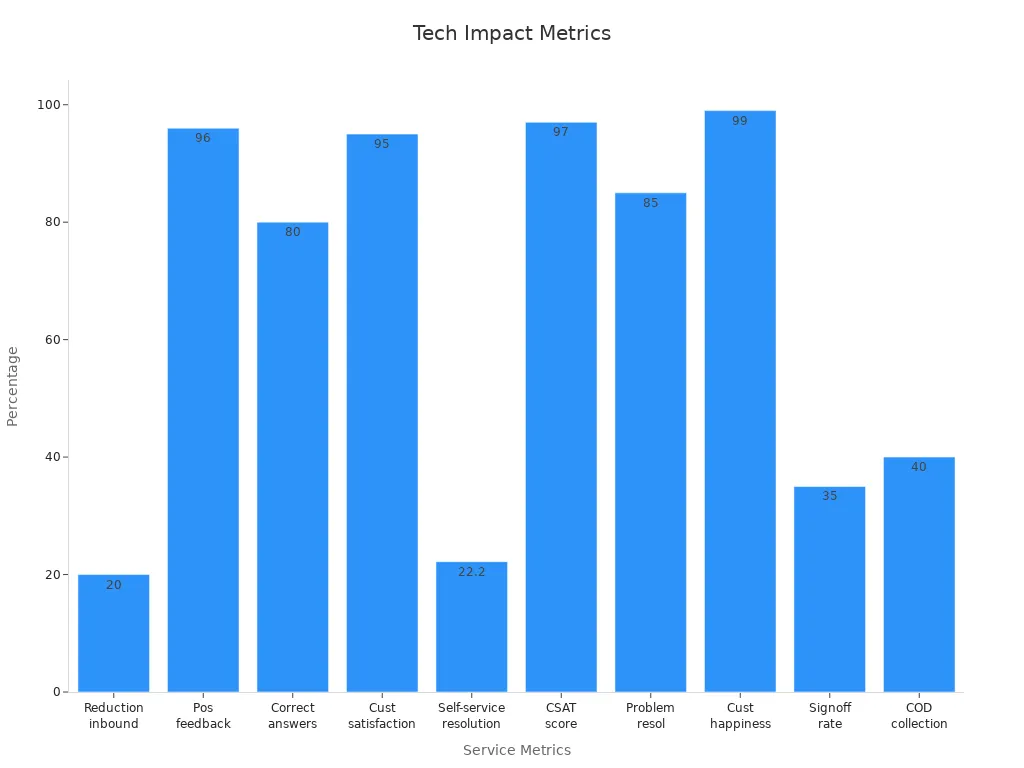
Top Customer Service Skills Employers Will Prioritize
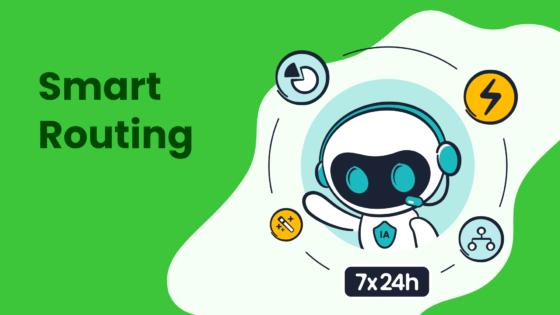
Empathy: Building meaningful customer connections
Empathy is the cornerstone of exceptional customer service. When you truly understand how a customer feels, you can respond in ways that make them feel heard and valued. This skill goes beyond listening—it’s about putting yourself in their shoes and showing genuine enthusiasm for solving their problems. For example, imagine a customer frustrated with a delayed delivery. Instead of just apologizing, you could acknowledge their inconvenience and offer a solution that exceeds their expectations, like expedited shipping or a discount.
Employers are prioritizing empathy because it directly impacts customer satisfaction. According to industry surveys, empathy and listening skills are among the top customer service skills that drive loyalty. They help you connect with customers on a deeper level, turning one-time buyers into lifelong advocates. Tools like Sobot’s Voice/Call Center can amplify your empathetic approach. With features like AI-powered voicebots and intelligent call routing, you can focus on meaningful interactions while repetitive tasks are handled seamlessly.
Adaptability: Navigating change in a dynamic environment
Adaptability is your ability to adjust to new situations, technologies, and customer needs. In 2025, this skill is more important than ever. Customer preferences change rapidly, and businesses are constantly evolving to keep up. Whether it’s learning a new tool or handling unexpected challenges, your willingness to adapt can set you apart.
Data shows that adaptability enhances performance in customer service roles. For instance:
| Indicator | Description |
|---|---|
| Change Management Efficiency | Measures how quickly and efficiently changes are implemented. |
| Innovation Rate | Reflects the number of new ideas or strategies to stay competitive. |
| Employee Skills Adaptability | Assesses how well employees adapt to new technologies or methodologies. |
| Customer Satisfaction Level | Represents how well changes are received by customers. |
Employers value adaptability because it ensures smooth transitions during organizational changes. Sobot’s solutions, like the Omnichannel platform, make adapting easier. By consolidating communication channels into one workspace, you can manage customer interactions efficiently, even during high-pressure situations. This flexibility boosts your ability to deliver top-notch service, no matter the circumstances.

Tech Proficiency: Leveraging tools like Sobot's Voice/Call Center
Tech proficiency is no longer optional—it’s a must-have skill for customer service professionals. You need to know how to use advanced tools to streamline processes and improve customer experiences. For example, Sobot’s Voice/Call Center offers features like AI-powered voicebots, intelligent IVR, and real-time analytics. These tools help you reduce call volumes, resolve issues faster, and provide personalized service.
Industry metrics highlight the importance of tech proficiency:
| Region | Key Trend | Impact on Tech Proficiency |
|---|---|---|
| Europe | Adoption of stringent data handling practices due to GDPR | Enhances consumer trust and drives innovation in compliance-focused solutions. |
| Asia-Pacific | Surge in demand for intelligent outbound solutions | Companies invest in omnichannel strategies to engage customers through multiple touchpoints. |
| Latin America | Focus on enhancing workforce capabilities through training and development | Organizations investing in training see improved customer engagement metrics. |
| Middle East/Africa | Digital transformation and adoption of intelligent automation solutions | Streamlines operations and enhances customer experience through AI-driven solutions. |
By mastering tools like Sobot’s Voice/Call Center, you can improve efficiency and deliver better results. Employers want professionals who can leverage technology to enhance customer satisfaction and drive business success.
Communication Skills: Mastering clarity and positivity
Clear and positive communication is the backbone of excellent customer service. When you communicate effectively, you ensure customers feel understood and valued. Strong communication skills help you explain solutions clearly, avoid misunderstandings, and build trust. For instance, imagine a customer confused about a product feature. Instead of using jargon, you could simplify the explanation and offer a step-by-step guide. This approach not only resolves the issue but also leaves a lasting positive impression.
Poor communication, on the other hand, can be costly. Studies show that companies with 100 employees lose an average of $420,000 annually due to miscommunication. Larger organizations face even steeper losses, amounting to $62.4 million each year. These figures highlight the importance of mastering communication skills to avoid such pitfalls.
Tools like Sobot’s Voice/Call Center can enhance your communication efforts. With features like intelligent IVR and AI-powered voicebots, you can provide clear and consistent responses across multiple channels. This not only improves customer satisfaction but also boosts your confidence in handling complex queries. Remember, when you communicate with clarity and positivity, you create a better experience for everyone involved.
Problem-Solving: Delivering creative and efficient solutions
Problem-solving skills are essential for delivering exceptional customer service. Customers often reach out because they face challenges, and your ability to resolve these issues quickly and creatively can make all the difference. For example, if a customer reports a recurring issue with a product, you could go beyond offering a replacement. By investigating the root cause and suggesting preventive measures, you demonstrate a proactive approach that builds trust.
Research underscores the importance of problem-solving in customer service. About 82% of U.S. consumers want more human interaction, especially when resolving issues. Yet, only 38% feel their needs are fully understood. This gap highlights the need for strong problem-solving skills to address customer concerns effectively. Additionally, companies that empower employees with the right tools and information see significant improvements in service quality.
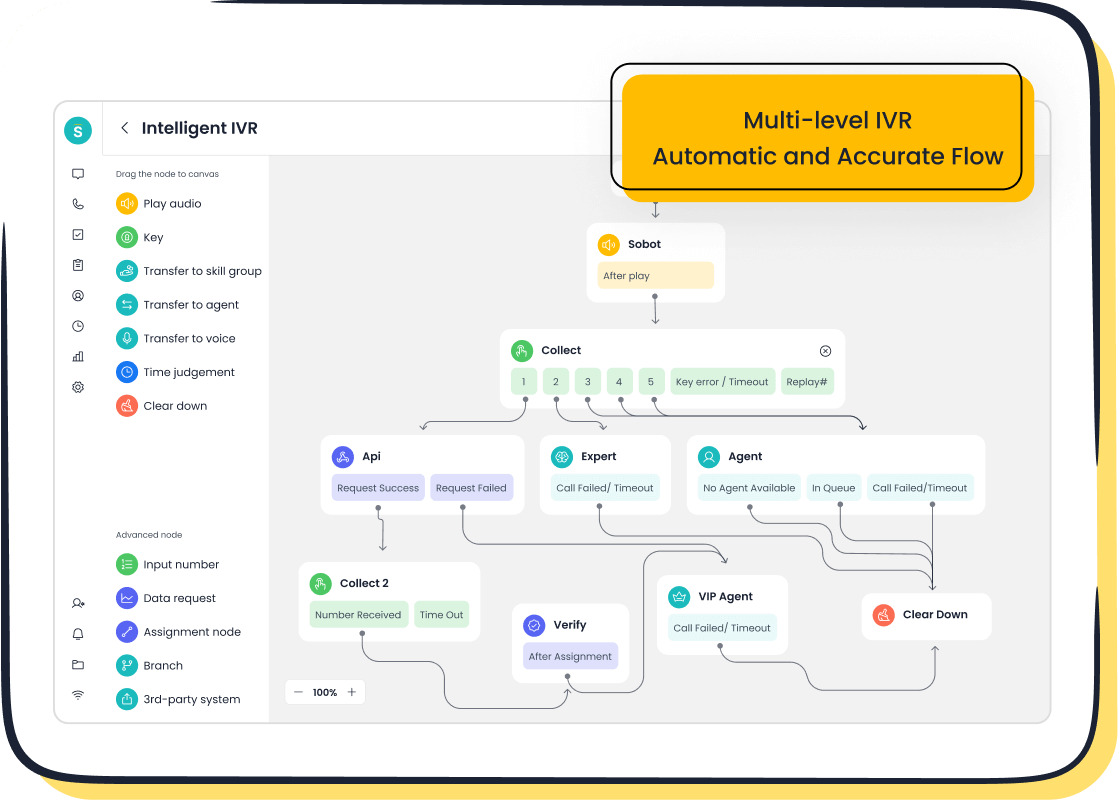
Sobot’s solutions, like the Omnichannel platform, can support your problem-solving efforts. By consolidating customer data into a unified workspace, you gain a comprehensive view of each interaction. This enables you to identify patterns, address recurring issues, and offer tailored solutions. When you combine technology with your problem-solving skills, you create a seamless and satisfying customer experience.
Emotional Intelligence: Managing emotions in customer interactions
Emotional intelligence (EI) is a game-changer in customer service. It allows you to connect with customers on a deeper level by understanding and managing emotions—both theirs and yours. When a customer feels frustrated or upset, your ability to empathize and respond calmly can turn a negative situation into a positive one. For instance, if a customer is angry about a delayed order, acknowledging their frustration and offering a sincere apology can diffuse tension and rebuild trust.
Studies emphasize the role of emotional intelligence in fostering loyalty. A 2022 survey revealed that customers with positive experiences are nearly five times more likely to trust and purchase from a company. Delighted customers are also 10 times more likely to recommend a brand. These findings show how managing emotions effectively can drive both satisfaction and loyalty.
Sobot’s AI-powered tools, such as voicebots and chatbots, can complement your emotional intelligence. By handling repetitive tasks, these tools free you to focus on meaningful interactions. This balance between technology and interpersonal skills ensures you can deliver authentic and empathetic service. When you prioritize emotional intelligence, you create connections that go beyond transactions, turning customers into lifelong advocates.
Multitasking: Balancing multiple priorities effectively
Multitasking is a vital skill in customer service. You often juggle multiple tasks, like answering calls, responding to emails, and updating customer records—all while staying calm and focused. Employers value this ability because it ensures smooth operations, even during peak times. But how do you master multitasking without feeling overwhelmed?
Start by prioritizing tasks. For example, if you're managing a live chat and a phone call simultaneously, focus on the customer with the more urgent issue. Tools like Sobot's Voice/Call Center can make this easier. Its unified workspace lets you handle multiple communication channels in one place. This means you can switch between tasks seamlessly, reducing errors and improving efficiency.
Multitasking also requires strong organizational skills. Keeping track of deadlines, customer preferences, and ongoing issues is crucial. Imagine you're assisting a customer with a billing problem while another asks about a product feature. By using Sobot's AI-powered voicebots, you can automate routine queries, freeing up time to focus on more complex issues. This balance ensures every customer feels valued.
Remember, multitasking isn't just about doing many things at once. It's about doing them well. With the right tools and mindset, you can handle multiple priorities effectively, boosting both customer satisfaction and your own productivity.
Cultural Competence: Serving diverse customer bases with sensitivity
Cultural competence is more important than ever in today's globalized world. Customers come from diverse backgrounds, and understanding their unique needs can set you apart. When you approach interactions with sensitivity and respect, you build trust and loyalty.
For instance, imagine a customer from a different cultural background who prefers a specific communication style. Adapting to their preferences shows you value their individuality. This is where teamwork skills come into play. Collaborating with colleagues who have different perspectives can help you better understand and serve diverse customers.
The benefits of cultural competence go beyond customer satisfaction. Companies with inclusive cultures often perform better financially. Take a look at this data:
| Evidence Type | Description |
|---|---|
| Boosted Performance | Organizations with inclusive cultures perform better financially, as shown by a study from BCG. |
| Broader Market Reach | Inclusive companies can better understand and cater to diverse customer needs. |
| Case Study: Global Tech Company | Increased diversity in management by 25% led to a 15% boost in profitability over two years. |
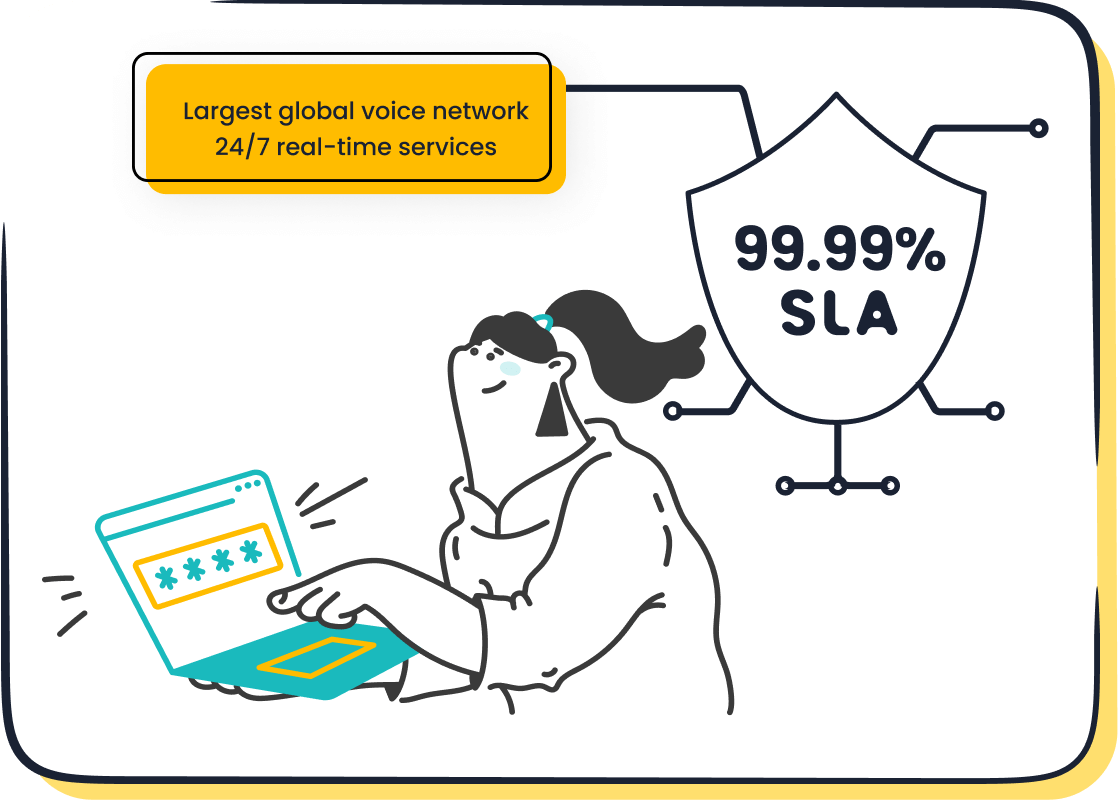
Sobot's Omnichannel Solution supports cultural competence by offering multilingual capabilities and personalized service options. Whether you're assisting a customer in Asia or Europe, the platform ensures seamless communication. This not only enhances customer experiences but also strengthens your teamwork skills by fostering collaboration across regions.
By embracing cultural competence, you create meaningful connections with customers. It's not just about understanding differences—it's about celebrating them. This approach helps you serve a broader audience while contributing to your organization's success.
How to Develop and Showcase Customer Service Skills for Your Resume
Training programs and certifications to enhance expertise
Investing in training programs and certifications is one of the best ways to sharpen your customer service skills. Employers value candidates who demonstrate a commitment to learning and self-improvement. Certifications like the Certified Customer Service Professional (CCSP) or specialized CRM software courses can set you apart. These credentials show that you're prepared to handle customer expectations and resolve challenges effectively.
Training programs also provide measurable benefits. For example, Zappos saw a significant boost in customer satisfaction and Net Promoter Scores (NPS) after prioritizing service training. Similarly, Delta Airlines reduced response times by 85%, improving customer loyalty. These examples highlight how targeted training can transform your approach to service.
To make the most of your training, focus on strategies that deliver real results. Here’s a quick breakdown:
| Strategy/Metric | Description |
|---|---|
| Clear Expectations | Establish workflows for handling customer complaints or inquiries. |
| Performance Metrics | Track metrics like customer satisfaction scores and resolution times. |
| Personalized Training | Use formats like videos, e-learning, or workshops to suit your learning style. |
| Ongoing Learning | Regularly update your skills with feedback and new training content. |
| Scenario-Based Training | Practice real-life scenarios to apply your skills effectively. |
By completing these programs, you’ll not only enhance your expertise but also gain valuable credentials to showcase on your resume.
Gaining practical experience through internships and roles
Nothing beats hands-on experience when it comes to mastering customer service. Internships and entry-level roles give you the chance to apply what you’ve learned in real-world situations. They bridge the gap between theory and practice, helping you build critical skills like communication, problem-solving, and resilience.
During internships, you might work on actual projects, participate in client meetings, or even tackle real business challenges. These experiences prepare you for the fast-paced nature of customer service roles. For instance, handling high-pressure situations during an internship can teach you how to stay calm and focused when managing customer complaints.
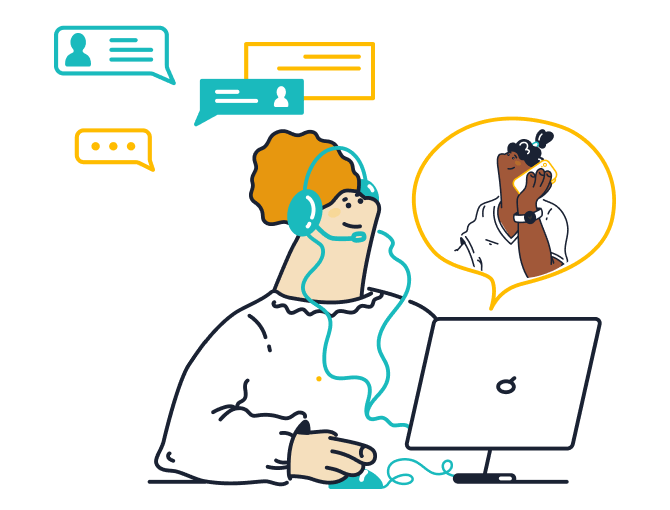
Many companies, including those using Sobot’s Omnichannel Solution, offer opportunities for interns to engage with cutting-edge tools. Imagine working with AI-powered chatbots or unified workspaces that streamline customer interactions. These tools not only make your job easier but also give you a competitive edge when applying for future roles.
If you’re just starting out, look for internships in industries like retail, financial services, or gaming. These sectors often provide immersive experiences that help you develop the skills employers value most. By the time you’re ready to apply for full-time positions, you’ll have a wealth of practical knowledge to highlight on your resume.
Highlighting customer service skills effectively on your resume
Your resume is your first chance to make a great impression. To stand out, you need to showcase your customer service skills in a way that grabs attention. Start by focusing on specific tasks you excelled at, such as managing high-volume calls or resolving conflicts with empathy.
Quantify your achievements wherever possible. For example, instead of saying, "Handled customer complaints," you could write, "Resolved 95% of customer complaints on the first call, improving satisfaction scores by 20%." Action verbs like "resolved," "improved," and "streamlined" make your accomplishments more impactful.
Here are some tips to make your resume shine:
- Highlight achievements that positively impacted customer satisfaction or loyalty.
- Emphasize soft skills like empathy, communication, and problem-solving with real examples.
- Mention relevant training or certifications, such as workshops on conflict resolution or CRM tools.
- Showcase your experience with customer service technologies, like Sobot’s Voice/Call Center, to demonstrate tech proficiency.
- Include brief testimonials from customers or supervisors to add credibility.

For example, if you’ve used Sobot’s Omnichannel Solution, mention how it helped you manage multiple communication channels efficiently. This shows employers that you’re comfortable with advanced tools and can adapt to modern customer service environments.
By tailoring your resume to highlight these skills, you’ll position yourself as a top candidate for any customer service role.
Using real-world examples to demonstrate skills in interviews
When you're in an interview, talking about your skills is one thing, but showing them through real-world examples? That’s what makes you stand out. Employers love hearing stories that prove you’ve got what it takes to handle real challenges. Sharing specific situations where you’ve excelled in customer service can make your skills feel more tangible and relatable.
Let’s say you’re asked about your problem-solving abilities. Instead of just saying, “I’m good at solving problems,” you could share a story. For example, “A customer once called about a recurring issue with their subscription. I used Sobot’s Voice/Call Center to pull up their history instantly. By analyzing the data, I identified the root cause and offered a permanent fix. The customer was thrilled, and their satisfaction score jumped by 25%.” See how that paints a clearer picture? It’s not just about what you did—it’s about the impact you made.
Here’s why real-world examples work so well:
| Evidence Type | Description |
|---|---|
| Quantifiable Results | Including specific metrics like increased satisfaction scores or reduced resolution times makes your story stronger. |
| Before and After Scenarios | Explaining the challenge you faced and the positive outcome you achieved shows your ability to transform situations. |
| Real-Life Examples | Sharing specific instances helps interviewers visualize your skills in action. |
| Testimonials and Quotes | Mentioning feedback from customers or supervisors adds credibility to your story. |
💡 Pro Tip: Use the STAR method (Situation, Task, Action, Result) to structure your examples. It keeps your story clear and focused.
For instance, if you’re highlighting adaptability, you might say, “During a system upgrade, I quickly learned Sobot’s Omnichannel Solution to manage customer interactions across multiple platforms. This reduced response times by 30% and kept our team on track during a busy season.” This shows you’re not just adaptable—you’re proactive and results-driven.
Real-world examples also let you showcase your emotional intelligence. Imagine describing a time when you calmed an upset customer. You could say, “A customer was frustrated about a delayed order. I empathized with their situation, apologized sincerely, and used Sobot’s AI-powered tools to expedite their delivery. They later left a glowing review, praising my understanding and quick action.”
By sharing stories like these, you’re not just telling interviewers you have the skills—they can see it for themselves. So, think back to your experiences, pick your best moments, and let your stories do the talking.
Common Questions About Customer Service Skills
What are examples of customer service skills for resumes?
When crafting your resume, showcasing the right customer service skills can make all the difference. Employers look for abilities that demonstrate your ability to connect with customers and solve their problems effectively. Some key examples include empathy, adaptability, and strong communication. For instance, you might highlight how you resolved 90% of customer complaints on the first call or how you used tools like Sobot’s Voice/Call Center to manage high call volumes efficiently.
Other valuable skills include problem-solving and multitasking. If you’ve handled multiple customer inquiries simultaneously or found creative solutions to complex issues, make sure to mention those. Including measurable results, like improving customer satisfaction scores by 25%, can make your resume stand out. These customer service skills examples show employers that you’re not just capable—you’re results-driven.
How can I measure and improve my customer service skills?
Measuring your customer service skills starts with tracking key performance indicators (KPIs). Metrics like first-call resolution rates, average response times, and customer satisfaction scores (CSAT) provide valuable insights. For example, if your CSAT score is consistently above 90%, it’s a sign you’re excelling. Tools like Sobot’s Omnichannel Solution can help you monitor these metrics in real time, giving you a clear picture of your performance.
To improve, focus on continuous learning. Take online courses, attend workshops, or earn certifications like the Certified Customer Service Professional (CCSP). Practice active listening and empathy during interactions. Role-playing scenarios with colleagues can also sharpen your skills. Remember, even small changes—like using positive language—can have a big impact on customer experiences.
What qualities define excellent customer service?
Excellent customer service goes beyond solving problems. It’s about creating positive, memorable experiences. Key qualities include patience, empathy, and emotional intelligence. Customers want to feel heard and valued, especially when they’re frustrated. For example, calmly addressing a delayed shipment and offering a thoughtful solution can turn a negative experience into a positive one.
Proactivity is another hallmark of great service. Anticipating customer needs and offering solutions before they ask shows you’re attentive. Using advanced tools like Sobot’s AI-powered voicebots can help you stay one step ahead by automating repetitive tasks and freeing up time for meaningful interactions. Ultimately, excellent service is about building trust and loyalty, one interaction at a time.
How can tools like Sobot's Voice/Call Center enhance customer service?
Imagine this: A customer calls your support line, frustrated about an issue. Instead of waiting endlessly or being transferred multiple times, they’re greeted by an AI-powered voicebot that understands their problem and routes them to the right agent. That’s the magic of Sobot’s Voice/Call Center. It doesn’t just handle calls—it transforms them into seamless, efficient experiences.
Here’s how it works. Sobot’s intelligent IVR (Interactive Voice Response) system personalizes every interaction. It uses a drag-and-drop interface to create custom workflows, ensuring calls go to the right person or team. This reduces wait times and boosts first-call resolution rates by up to 85%. Customers leave happier, and your team works smarter.
The platform also offers real-time analytics. You can monitor call data, track performance, and identify trends instantly. For example, if you notice a spike in calls about a specific issue, you can address it proactively. This kind of insight helps you stay ahead of problems and improve customer satisfaction.
Sobot’s AI-powered voicebots take things a step further. They handle repetitive queries, like checking order statuses or resetting passwords, freeing up agents for more complex tasks. This balance between automation and human interaction increases efficiency by 30% and reduces inbound call volumes by 20%.
And let’s not forget the global reach. With access to phone numbers worldwide and 99.99% system uptime, Sobot ensures your service is reliable, no matter where your customers are. Samsung, for instance, used Sobot’s solutions to achieve a 97% customer satisfaction rate while improving agent efficiency by 30%.
In today’s fast-paced world, tools like Sobot’s Voice/Call Center aren’t just helpful—they’re essential. They let you deliver faster, smarter, and more personalized service, keeping your customers happy and your business thriving.
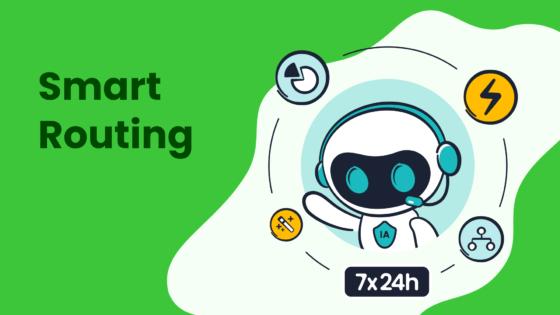
Ready to enhance your customer service? Explore Sobot’s Voice/Call Center here.
Why These Skills Are Essential for Career Success
The link between customer service skills and career growth
Customer service skills are your ticket to career growth. They’re not just about helping customers—they’re about building relationships, solving problems, and creating positive experiences. Employers value these skills because they show you can handle challenges and adapt to different situations. For example, when you demonstrate empathy, you’re not just resolving an issue—you’re earning trust. That trust can lead to promotions, leadership roles, or even opportunities in other departments.
Think about this: Effective communication and problem-solving are two of the most sought-after skills in any industry. They’re essential for maintaining customer satisfaction and loyalty. When you master these, you’re not just helping customers—you’re showing your employer that you’re a valuable asset. Tools like Sobot’s Voice/Call Center can amplify your impact by streamlining tasks and giving you more time to focus on meaningful interactions. This combination of skills and technology can fast-track your career.
How these skills drive organizational success
Your customer service skills don’t just benefit you—they’re a game-changer for your organization. Satisfied employees deliver better service, which leads to happier customers. Happier customers stick around, spend more, and even recommend the company to others. This creates a cycle of success that benefits everyone.
Here’s how key skills contribute to organizational success:
| Key Skills | Impact on Customer Service |
|---|---|
| Effective Communication | Solves problems and keeps customers satisfied |
| Empathy | Builds trust and strengthens customer relationships |
| Problem-Solving | Enhances experiences and drives loyalty |
| Team Collaboration | Improves service delivery and customer interactions |
| Continuous Improvement | Keeps service quality high and customers happy |
When you combine these skills with tools like Sobot’s Omnichannel Solution, you can deliver seamless service across multiple channels. This boosts efficiency and ensures every customer feels valued. Companies that invest in employee well-being and training see higher satisfaction rates, both internally and externally. It’s a win-win.
The growing demand for skilled customer service professionals
The demand for skilled customer service professionals is skyrocketing. Job openings in the U.S. are higher than pre-pandemic levels, and companies are actively seeking talent to fill these roles. With unemployment rates at historic lows, competition for top positions is fierce. Employers are looking for candidates who can adapt to new technologies, handle diverse customer needs, and maintain a strong customer focus.
This demand isn’t just limited to one region. Globally, businesses are prioritizing customer service as a key differentiator. Whether it’s retail, financial services, or gaming, companies need professionals who can deliver exceptional experiences. By mastering tools like Sobot’s Voice/Call Center, you can stand out in this competitive market. These tools help you manage high call volumes, resolve issues faster, and provide personalized service—all skills that employers value.
If you’re looking to future-proof your career, focusing on customer service skills is a smart move. They’re not just in demand—they’re essential for success in today’s job market.
The customer service skills employers value in 2025—like adaptability, empathy, and tech proficiency—aren’t just buzzwords. They’re your key to thriving in a fast-changing world. These skills help you build trust, solve problems faster, and stay ahead of trends. For example, adaptability lets you switch between channels effortlessly, while tech proficiency ensures you can leverage tools like Sobot’s Voice/Call Center to deliver seamless support.
Remember, staying customer-focused and embracing change will set you apart. With the right mindset and tools, you’ll not only meet expectations but exceed them.
FAQ
What are the most important customer service skills in 2025?
Empathy, adaptability, and tech proficiency top the list. Employers want professionals who can connect with customers, handle change, and use tools like Sobot’s Voice/Call Center. These skills help you deliver personalized service, resolve issues faster, and build lasting relationships.
Tip: Practice active listening and explore tools like Sobot’s AI-powered solutions to sharpen these skills.
How can I improve my customer service skills?
Start with training programs or certifications like CCSP. Gain hands-on experience through internships. Use tools like Sobot’s Omnichannel Solution to manage interactions efficiently. Track metrics like customer satisfaction scores to measure progress. Small steps, like using positive language, can make a big difference.
Why is tech proficiency essential for customer service?
Tech proficiency helps you streamline tasks and improve customer experiences. For example, Sobot’s Voice/Call Center reduces call volumes by 20% and boosts resolution rates to 85%. Knowing how to use such tools makes you more efficient and valuable to employers.
How do tools like Sobot’s Voice/Call Center enhance customer service?
Sobot’s Voice/Call Center simplifies communication. Its intelligent IVR routes calls to the right agent, reducing wait times. AI-powered voicebots handle repetitive queries, freeing you for complex issues. With 99.99% uptime, it ensures reliable service, boosting customer satisfaction and loyalty.
Example: Samsung used Sobot’s solutions to achieve a 97% satisfaction rate.
What’s the best way to showcase customer service skills on a resume?
Highlight measurable achievements. For example, “Improved customer satisfaction scores by 25% using Sobot’s Omnichannel Solution.” Use action verbs like “resolved” or “streamlined.” Mention certifications and tools you’ve mastered. Real-world examples make your resume stand out.
Pro Tip: Tailor your resume to the job description for maximum impact.
See Also
Discovering Leading Cloud Contact Centers for 2025
The 10 Most Effective Customer Service Tools for 2024
Best 10 Customer Feedback Software Options for 2024